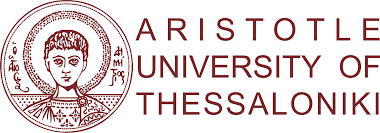
Thessaloniki 541 24, Greece
The Aristotle University of Thessaloniki (A.U.Th.; often called the Aristotelian University or University of Thessaloniki; Greek: Αριστοτέλειο Πανεπιστήμιο Θεσσαλονίκης) is the sixth oldest, and among the most highly ranked, tertiary education institution within Greece. Named after the philosopher Aristotle, who was born in Stageira, about 55 km (34 miles) east of Thessaloniki, it is the largest university in Greece and its campus covers 230,000 square metres in the centre of Thessaloniki, with additional educational and administrative facilities elsewhere.The Aristotle University of Thessaloniki was founded in 1925 during the premiership of Alexandros Papanastassiou and was legislated under Law 3341/14-6-25. It was the second Greek university to be founded after the University of Athens, which was established in 1837. The university was built on top of the remains of what had once been the Jewish cemetery in Thessaloniki, until the cemetery's destruction during the Nazi occupation. According to Eleftherios Venizelos' plans following the end of the World War I, Smyrni was intended to be the seat of the second Greek university, while the third university was to be established in Thessaloniki. However, Smyrni was not part of Greece at the time and the plans fell through after the outcome of the Greco-Turkish War in Asia Minor. Nevertheless, in 1924, Alexandros Papanastassiou decided to found a university in Thessaloniki in order to boost the local economy and culture. The chronological development of the university, which was renamed the Aristotle University of Thessaloniki in 1954, can be divided into three stages, each covering a period of approximately 25 years. The language of instruction is Greek, although there are programs in foreign languages and courses for international students, which are carried out in English, French, German and Italian.
School Director: Nikos Papaioannou
Population: 45000
Population of Teaching Staff: 2200